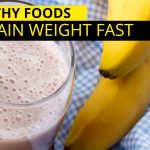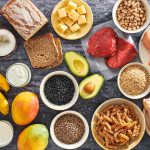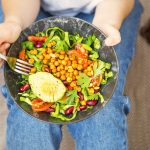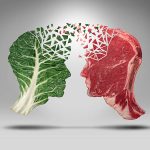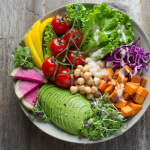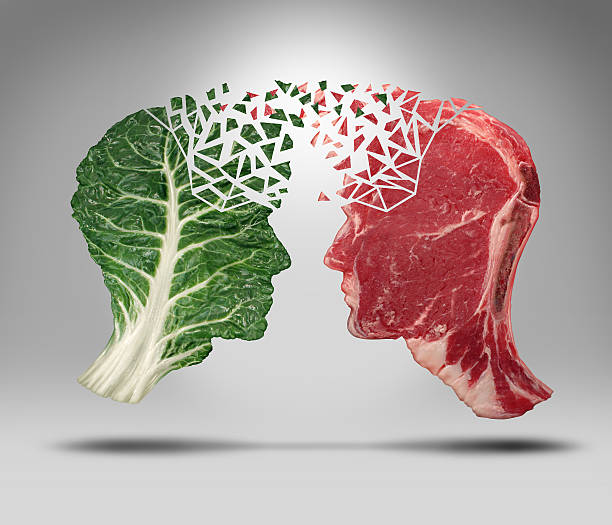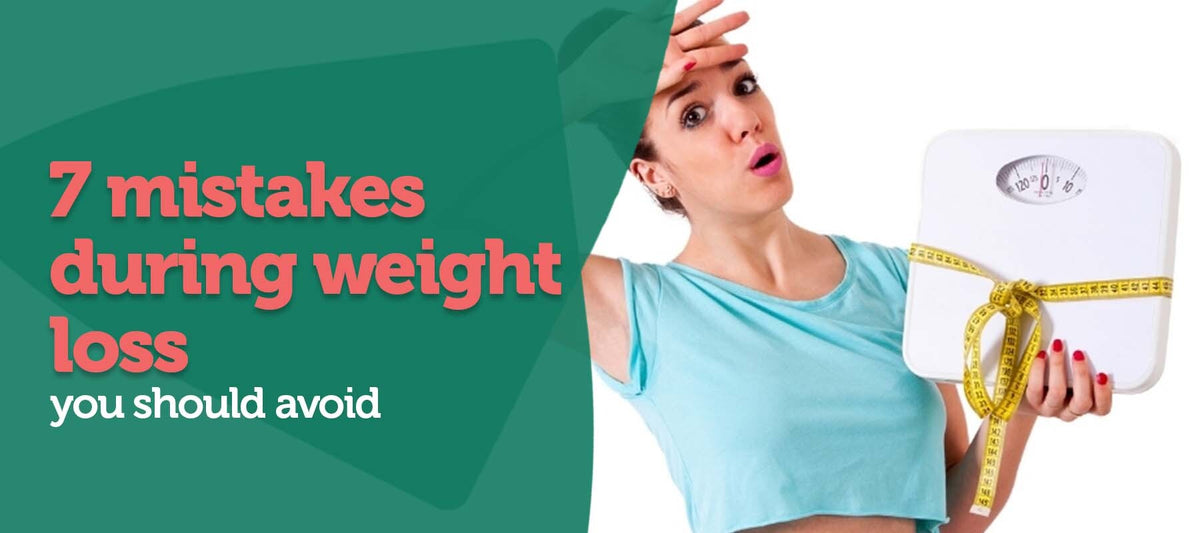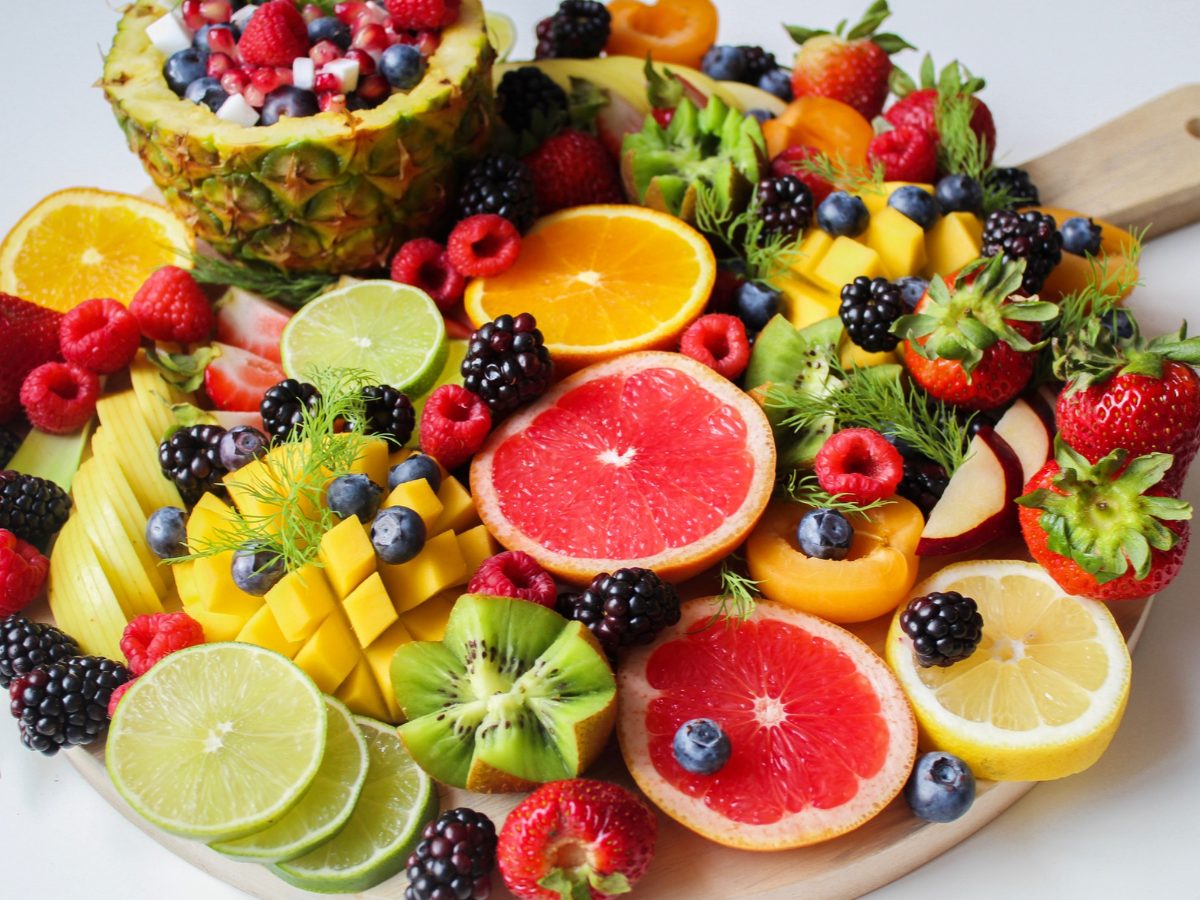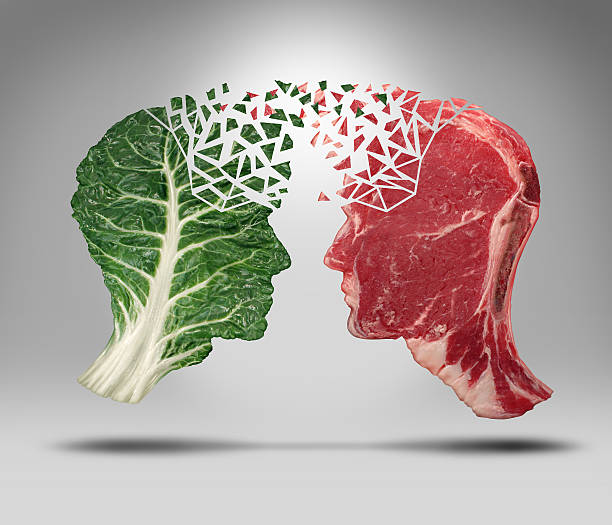
I. Introduction
Balanced diets are important for good health and the general well-being of the body irrespective of your body goals. Whether you are trying to gain weight or lose weight, it is important to ensure that your meals are balanced.
Balanced diets can be classified as any meal or meal plan that has all the classes of food represented. As much as weight gain focuses on calories, important vitamins, minerals, and fibers should be left out of our diet.
Vegetarians can also gain weight, this is against a popular misconception that vegetarians cannot gain weight. A vegetarian diet can also contain the required calorie content to stimulate weight gain. This is one of the most basic principles of weight gain; calorie arithmetic.
In this article, we will be showing you a few tricks on how to stay on your vegetarian diet and still meet your weight gain goals.
II. Understanding Vegetarian Diets and Weight Gain
Vegetarian diets are meals that do not contain products or by-products of animal slaughter. This is as simple as it gets.
Any meal that contains products or by-products of animal slaughter cannot be considered a vegetarian meal. Some examples of products or by-products of animal slaughter are beef, chicken, turkey, mutton, liver, etc. Any food that requires the death of animals is off the vegetarian list.
Vegetarian diets cover a good range of everyday foods except for meat and other by-products of animal slaughter. Here are some weight gain diets for vegetarians and the nutrients they contain:
- Fruits and vegetables: These are important sources of vitamins, minerals, and fiber. They are also low in calories and fat. Some examples include oranges, kiwis, strawberries, blueberries, spinach, broccoli, carrots, and bell peppers.
- Grains and cereals: These are good sources of complex carbohydrates, fiber, and some minerals. Examples include whole wheat bread, brown rice, white rice, quinoa, and oatmeal.
- Legumes and pulses: These are good sources of protein, fiber, iron, and other minerals. Examples include lentils, chickpeas, kidney beans, and tofu.
- Nuts and seeds: These are rich in healthy fats, protein, and minerals. Examples include almonds, walnuts, sunflower seeds, and chia seeds.
- Dairy alternatives: These can be good sources of calcium and vitamin D. Examples include soy milk, almond milk, and tofu.
Some vegetarians struggle to gain weight generally because of poor meal planning. To gain weight as a vegetarian requires special attention to meals way more than non-vegetarians.
This is because the more significant source of healthy calories which is meat is now out of the option. Without meat, there becomes a large calorie gap that needs to be filled. Luckily for us, there are other quality options for this purpose.
III. Tips for Gaining Weight on a Vegetarian Diet

Tip 1: Calculating calorie needs
The basic principle for weight gain through dieting is: to eat more calories than you burn off. This same rule also applies to a vegetarian diet or meal plan.
Tip 2: Choosing high-calorie vegetarian foods
On average, an adult biological female requires about 2000 calories to maintain her current weight and carry out daily activities. An adult biological male on the other hand requires about 2500 calories to also maintain his current weight and carry out daily activities.
A drop in calories from the recommended calorie requirement for basic sustenance will lead to gradual weight loss while an increase will lead to weight gain.
Of course, 2000 calories for women and 2500 for men are not etched in stone.
What other factors can override the generic calorie requirement in men and women?
- Basal metabolic rate (BMR): This is the number of calories the body burns at rest. BMR is influenced by factors such as age, gender, weight, and height. Men generally have a higher BMR than women because they tend to have more muscle mass and less body fat.
- Physical activity level: The amount of energy a person burns during physical activity depends on the type, duration, and intensity of the activity. Men generally require more calories than women because they tend to be more active.
- Age: As people age, their BMR decreases, which means they require fewer calories to maintain their weight. This is partly due to a decrease in muscle mass and an increase in body fat.
- Hormones: Hormonal changes can affect calorie needs, particularly in women. For example, during pregnancy and breastfeeding, women require additional calories to support the growth and development of the baby.
- Genetics: Some people may have a genetic predisposition to higher or lower calorie needs.
To choose high-calorie vegetarian foods you need to be conscious about what foods to major in and what your add-ons will be.
Tip 3: Incorporate healthy fats and oils into your diet
Healthy fats and oils are essential to boost your calorie intake as oils like olive oil and coconut oil add essential calories to your meals. They can be used to cook or even drizzled on salads.
Avocado provides fat which can add to your calories and avocado can be used as a spread to toast.
Tip 4: Incorporate rich proteins
Proteins are an essential part of weight and calorie boosts as such should be incorporated into your vegetarian weight gain meal plan. Legumes are a good source of protein and fiber. They are high in calories and provide the body with essential nutrients. Some examples are beans, lentils, chicken peas, (and peas in general).
Tip 5: Incorporating eggs into your diet
Eggs are amongst the most nutritious meals available and good thing they also make the vegetarian meal option list (for lacto-ovo vegetarians). At least 3 eggs per day will do the job.
Tip 6: Avoid empty-calorie foods
Vegetarians most times find it difficult to gain weight because they consume a lot of empty calories. In a sense of perceived limited food options, some vegetarians tend to embrace junk foods as the go-to source of calories.
These calories are termed empty calories because they contain little or no nutrients. Some examples of such foods are cakes, doughnuts, soft drinks, candy, etc. Here are some effects of junk foods on health.
Tip 7: Plan your meals ahead of time

As a vegetarian looking to gain weight, it is important to plan meals ahead of time. This way you are not caught in a fix thereby embracing empty calories as an option or having meat as a compromise.
IV. Sample Meal Plans for Weight Gain on a Vegetarian Diet
Here is a three-day vegetarian meal plan for weight gain:
Day 1:
Breakfast: Greek yogurt with mixed berries, chopped almonds, and honey. Whole grain toast with peanut butter.
Snack: Apple slices with almond butter.
Lunch: Whole grain pita stuffed with hummus, avocado, and mixed vegetables. Side of quinoa salad with black beans, corn, tomatoes, and cilantro.
Snack: Trail mix with mixed nuts, dried fruit, and dark chocolate chips.
Dinner: Baked sweet potato stuffed with black beans, sautéed spinach, and diced tomatoes. Side of roasted Brussels sprouts.
Day 2:
Breakfast: Banana and peanut butter smoothie made with almond milk and protein powder. Whole grain English muffin with avocado and tomato slices.
Snack: Sliced pear with cheese.
Lunch: Tofu and vegetable stir-fry with brown rice.
Snack: Granola bar with mixed nuts and seeds.
Dinner: Lentil and vegetable soup with a whole grain roll. Side of roasted root vegetables.
Day 3:
Breakfast: Oatmeal with mixed berries, chopped nuts, and honey. Scrambled eggs with spinach and feta cheese.
Snack: Carrot sticks with hummus.
Lunch: Grilled vegetable and cheese sandwich on whole grain bread. Side of quinoa salad with dried cranberries, pumpkin seeds, and balsamic vinaigrette.
Snack: Greek yogurt with mixed nuts and honey.
Dinner: Chickpea and vegetable curry with brown rice. Side of steamed green beans.
Make sure to adjust portion sizes and total calorie intake according to individual needs and activity levels. This meal plan provides a good balance of protein, healthy fats, and complex carbohydrates to support weight gain healthily and sustainably.
Here are some sample snacks for weight gain on a vegetarian diet:
- Trail mix: Mix nuts, seeds, dried fruit, and dark chocolate chips for a calorie-dense and nutritious snack.
- Avocado toast: Top a slice of whole grain bread with mashed avocado, tomato slices, and a sprinkle of salt and pepper.
- Nut butter and fruit: Spread almond or peanut butter on sliced apples, bananas, or pears for a satisfying snack.
- Cheese and crackers: Pair whole grain crackers with sliced cheese for a protein and calorie-rich snack.
- Energy balls: Mix oats, nut butter, honey, and chocolate chips to create no-bake energy balls that can be stored in the fridge for a quick snack.
- Hummus and vegetables: Dip baby carrots, sliced bell peppers, and cucumbers in hummus for a fiber and protein-rich snack.
- Greek yogurt with granola: Top plain Greek yogurt with your favorite granola and mixed berries for a protein and calorie-packed snack.
- Toasted nuts: Toast almonds, cashews, or walnuts with a sprinkle of cinnamon and sugar for a crunchy and satisfying snack.
Remember that the key to weight gain is to consume more calories than you burn. Choose snacks that are calorie-dense and nutrient-rich to help support weight gain healthily and sustainably.
V. Vegetarian-Friendly Supplements for Weight Gain
There is a list of vegetarian-friendly supplements to aid your weight gain process which is completely healthy. We would be discussing just a couple of them.
Whey protein is a popular supplement for those looking to gain weight, as it is high in protein and can support muscle growth. While whey protein is derived from milk, there are vegetarian-friendly whey protein powders available on the market.
These powders are made using non-animal-derived sources, such as pea protein, soy protein, or hemp protein. These plant-based protein powders offer similar benefits to whey protein and can help support weight gain healthily and sustainably.
Creatine is a popular supplement for weight gain, as it can increase muscle mass and strength. While some creatine supplements are derived from animal sources, there are vegetarian-friendly creatine supplements available on the market.
These supplements are often sourced from plant-based ingredients, such as creatine monohydrate derived from non-animal sources. Vegetarians looking to gain weight can benefit from taking creatine supplements, which can help support muscle growth and enhance athletic performance.
Weight gainer supplements are a popular choice for those looking to gain weight and muscle mass. While some weight gainer supplements may contain animal-derived ingredients, there are vegetarian-friendly weight gainer supplements available on the market.
These supplements often use plant-based protein sources, such as pea protein, brown rice protein, or hemp protein, and can also contain healthy fats and carbohydrates to support weight gain.
Vegetarians can benefit from taking weight gainer supplements as part of a balanced diet and exercise program, which can help support healthy weight gain and muscle growth.
B-complex vitamins are important for overall health and can help support energy production and metabolism. Vegetarian-friendly B-complex vitamin supplements are available on the market for those who may need additional support.
These supplements can be derived from plant-based sources, such as yeast or algae, and do not contain any animal-derived ingredients. Vegetarians may benefit from taking B-complex vitamin supplements as part of a balanced diet and exercise program, which can help support healthy weight gain and overall health.
Many vegetarian-friendly foods are also good sources of B vitamins, such as fortified cereals, leafy greens, and legumes.
When choosing supplements it’s important to read labels and ensure the creatine supplement does not contain any animal-derived ingredients if following a vegetarian diet.
VI. Exercise and Weight Gain on a Vegetarian Diet
Exercise is an integral part of a healthy weight gain process. It helps to reduce visceral fat which can be dangerous to health. It also gives the body a firm structure while putting on those extra pounds.
More strength training should be incorporated into your weight-gain exercise program. This is because strength training helps weight gain through muscle mass addition which is encouraged by proteins in our body.
Cardio should make up less of our exercise program but should not be cut off as it helps regulate heart rate and burn off visceral fat.
VII. Challenges and Solutions for Vegetarians Trying to Gain Weight
Social and cultural pressures: Vegetarianism is an age-long health and lifestyle that has continued to gain adoption all around the world. Currently, about 22% of the world’s population are vegetarians in one form or the other.
This adoption has not shielded the idea from societal critiques and attacks as vegetarianism is commonly attached to people with health challenges. This is not true. People can be vegetarians for whatever reasons they deem fit.
Limited vegetarian options in some restaurants: Most restaurants do not consider vegetarian meal options. This can be attributed to the small market size of vegetarian meals in most parts of the world.
To avoid being stuck in this situation as a vegetarian, it is advisable to prepare your own meals and snacks by yourself. That way you have a wide range of food at your disposal and an affordable cost in the long run.
Finding support from other vegetarians: Joining a support group or having vegetarian friends is a good way to keep motivated. Solutions to peculiar problems can be found easily when working in a group or with a partner. Group buying is also possible which enables you to save cost on food items.
Your weight gain journey can become more fun if there are people with similar goals that you work with. It is important to know that weight gain is not a sprint, consistency, discipline, and motivation gets the job done.
VIII. Conclusion
To successfully gain weight on vegetarian diet, the tips in this article are a game changer. Avoid empty calories and processed food, incorporate healthy proteins, eggs, fat, and oil into your diet, plan your meals, and exercise.
A final tip I will like to share is this; get comfortable preparing your own meals yourself as a vegetarian. This way you will never have a need to break the program.
There are a lot of success stories out there of vegetarians who have gained weight to get their perfect bodies. The next success story can be yours. Have it in mind that weight gain cannot be achieved overnight but with discipline and consistency.
Frequently Asked Questions
- Can you gain weight on a vegetarian diet?
As against popular opinion, weight gain can be achieved on a vegetarian diet. This is simply because weight gain is a game of calorie arithmetic. Know how many calories your body needs and work towards smashing the target.
- What are some good sources of protein for vegetarians trying to gain weight?
- Do I need to take supplements to gain weight on a vegetarian diet?
Foods can sufficiently give you all the calories you need but supplements help make the job faster.
- Is exercise important for gaining weight on a vegetarian diet?
Yes, the role of exercise cannot be undermined. Exercise helps build weight through muscle mass increase and protein synthesis. See how to exercise the right way here.
- Are there any challenges for vegetarians trying to gain weight?
Vegetarians face peculiar challenges when trying to gain weight. Some of these issues are social constructs against the idea of weight gain on a vegetarian diet, lack of vegetarian meal options in restaurants, then discouragement, and setbacks from lack of motivation.
One useful motivation hack is to find a weight gain partner or join a support group.












